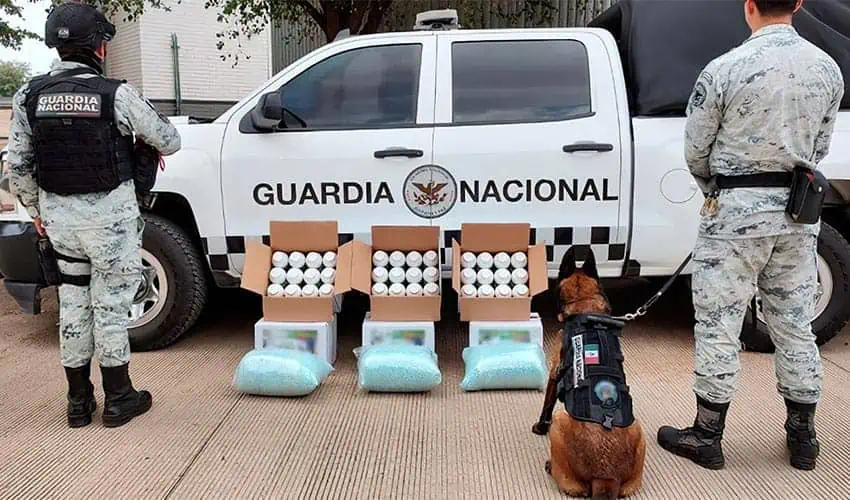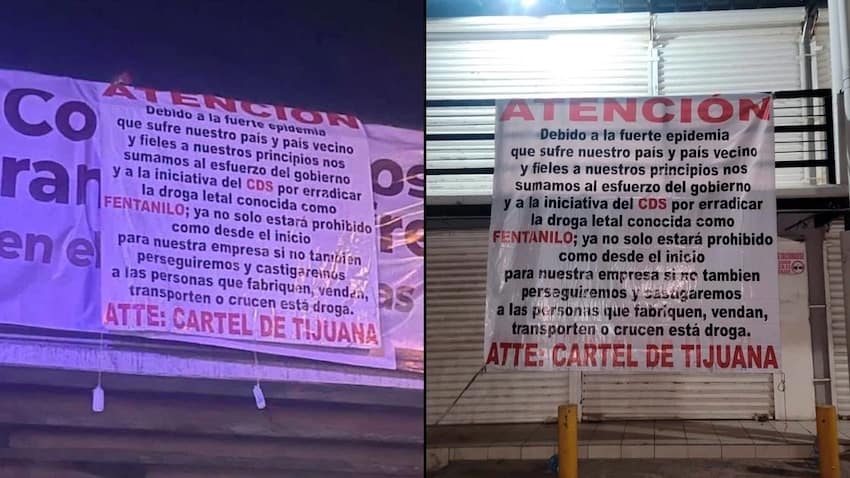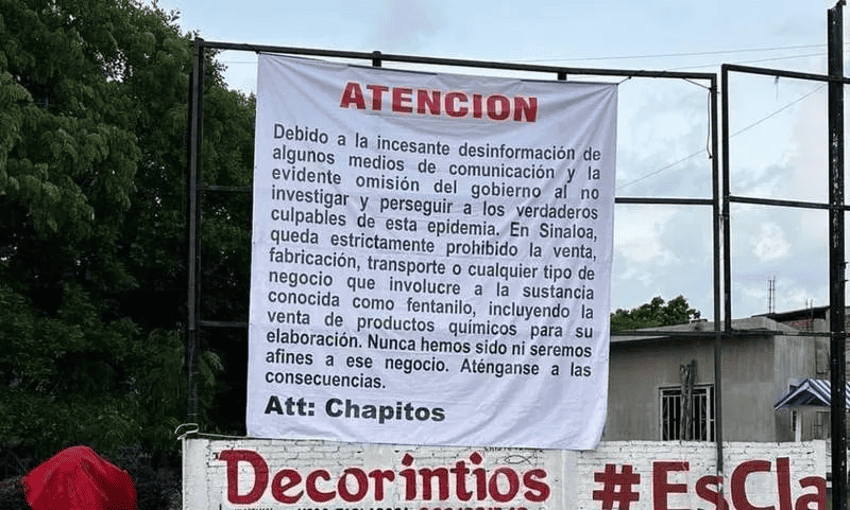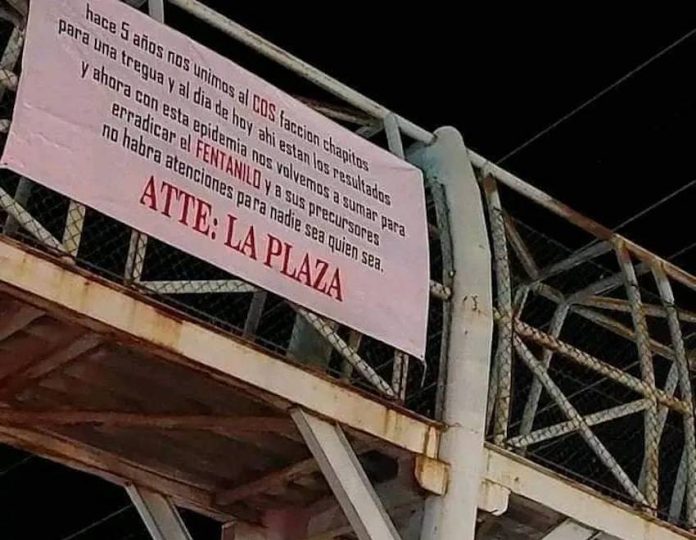New narco-banners declaring a criminal crackdown on fentanyl trafficking have appeared in Baja California Sur, two weeks after a faction of the Sinaloa Cartel announced they were banning production and sale of the opioid.
The banners were found hanging on a bandstand in a square in La Paz and on two pedestrian bridges in Cabo San Lucas. They were ostensibly signed by the criminal group “La Plaza,” who claim to be allies of the “Los Chapitos” faction of the Sinaloa Cartel.

“Five years ago we joined the CDS [Sinaloa Cartel] Chapitos faction in a truce and up until now, we have seen results, and now with this epidemic we are joining again to eradicate fentanyl and its precursors, there will be no forgiveness for anyone no matter who they are,” the banners read.
Despite the very public location of the banners, nobody reported seeing them being hung. The state Attorney General’s Office said that they are reviewing security cameras in the area for more information, and Governor Víctor Castro Cosío said that security services are “on red alert.”
On Oct. 2, similar banners were hung in several locations around the state of Sinaloa, declaring a crackdown on fentanyl trafficking by “Los Chapitos,” a Sinaloa Cartel faction led by the sons of jailed drug trafficker Joaquín “Chapo” Guzmán.
“The sale, manufacture, transportation or any kind of business involving the substance known as fentanyl, including the sale of chemical products for its production, is strictly prohibited in Sinaloa,” the banners read.

The messages claimed that “Los Chapitos” have never been involved in fentanyl trafficking – despite numerous indictments by the United States against the brothers and their associates stating that they are among the leading suppliers of the opioid to the U.S.
In the following weeks, similar banners appeared in the state of Sonora, signed by “Los Chapitos” allies “Los Pelones,” and in the border city of Tijuana, signed by the Tijuana Cartel.
On Oct. 16, an exclusive investigation by the Wall Street Journal reported that Los Chapitos had implemented the fentanyl ban as a ploy to lessen pressure from U.S. law enforcement. The group has suffered several high-profile blows over the last year, including the capture in January of former leader Ovidio Guzmán López, who was subsequently extradited to the U.S. to face drug trafficking charges.
Although several underworld sources confirmed to the Wall Street Journal that Los Chapitos is genuinely enforcing the fentanyl ban – including through violence – they said that exports of cocaine, heroin and methamphetamine would likely rise to make up for the loss of income from fentanyl.

Furthermore, U.S. security experts said that they saw the ban as a public relations ploy that would have little effect on fentanyl trafficking in the long term.
After the latest banners appeared in Baja California Sur, Governor Víctor Castro said that he was discussing the issue with governors from other affected states, but indicated that he would not allow the actions of criminal groups to influence policy.
“The most important thing is for the government to draw its line,” he said. “We govern without any involvement with groups of this nature… Because one who plays with fire is going to get burned.”
With reports from El Universal, Zeta Tijuana, El Economista and The Wall Street Journal
